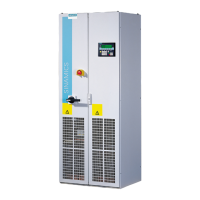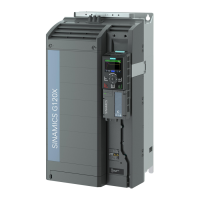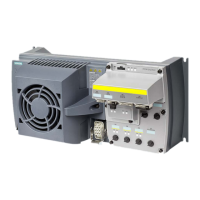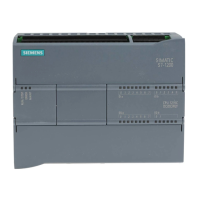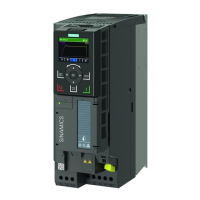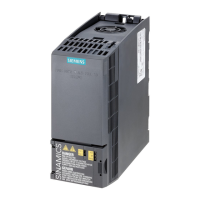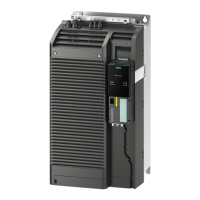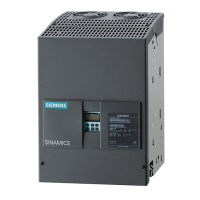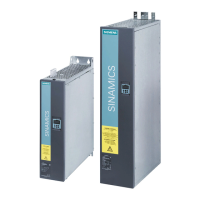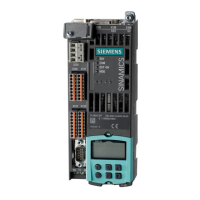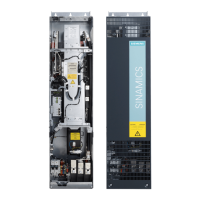14.3 Signal interconnection
Overview
The converter allows input and output signals of dierent converter functions to be
interconnected with one another. In addition to setting parameters, the ability to interconnect
signals is an additional option of adapting converter functions to address the particular
application.
Description of function
A converter function comprises one or several subfunctions that are interconnected with one
another.
4VCGVODUJPO
4JHOBMTJOL
CJOBSZ
4JHOBMTPVSDF
CJOBSZ
4JHOBMTPVSDF
OVNFSJD
4JHOBMTJOL
OVNFSJD
*OQVU
0VUQVU
1BSBNFUFST
DYYYY
SYYYY
SYYYY
DYYYY
Figure14-2 An interconnectable subfunction
Settable subfunctions can be adapted to the specic application using parameters.
In addition to setting parameters, inputs and outputs of subfunctions can be interconnected
with other subfunctions.
The following signal interconnections are possible:
• Interconnecting signal sources with signal sinks:
– Binary signal sinks and signal sources only have the value 0 or 1.
– Numerical signal sinks and signal sources can have any values.
• Interconnection of xed values for binary or numerical signal sinks
• Interconnection of substitute values for binary and numerical signal sinks
The converter uses the substitute value if the associated signal interconnection has become
invalid.
Table 14-2 Interconnection possibilities
Icon Name Properties Interconnection possibilities
Signal Fixed value Substitute value
Binary signal sink Can assume the value
0 or 1.
Binary signal
source
X X
Binary signal source Binary signal sink ‑ ‑
Functions
14.3Signal interconnection
SINAMICS G220 converter
324 Operating Instructions, 04/2024, FW V6.2, A5E51781573B AB
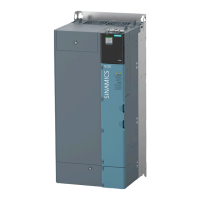
